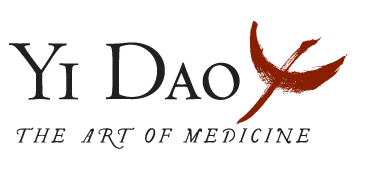Eastern and Western medicine approach health from fundamentally different perspectives. At Yi Dao we believe that both approaches have their strong points, and that both systems should be used whenever they are most appropriate.
Eastern Medicine is an umbrella term for various systems of medicine which originated in Eastern countries such as China, Japan and India. At the moment, Yi Dao offers Chinese acupuncture and Tui Na, which are both part of Traditional Chinese Medicine (TCM).
A common characteristic of all Eastern medicine is that any symptom that a patient presents with is measured against the health of the whole person. This identifies a “pattern of illness” that often encompasses physical as well as mental and emotional states.
It is important to identify why the person has developed their particular pattern of ill health (diet, posture, dysfunctional movement, emotional stress) as unless those reasons are changed, any recovery may be short-lived.
Treatment then encourages the body to heal itself and therefore improve the overall “pattern”. It may take slightly longer than conventional medicine to improve a condition, however in the long run the improvement may be more long-lasting and there will be no side-effects.
However, the treatment of some acute conditions (eg pain) can be local and focused on a particular symptom or area to achieve quick relief.
Western medicine refers to the conventional medicine that we are all familiar with, that our GPs and hospital doctors are trained in. A characteristic of Western medicine is that it tends to be “reductionist”, ie it usually aims to isolate a particular biological process which leads to a specific symptom. There are also also recognised conditions that bring together a collection of symptoms under one particular syndrome.
Treatment aims to correct this particular malfunctioning process, often by taking medication or perhaps surgery if the condition has progressed. This is useful if a condition is very acute or very dangerous and needs to be corrected immediately.
Western medicine tends to be very fast-acting, however there can be a risk of side-effects with powerful medication. As is the case with all medicine (Eastern, complementary or Western), if the root causes of the condition have not been addressed there is the possibility that the condition may return as soon as the medication is stopped.
Complementary medicine again is an umbrella term which encompasses all health-related disciplines which can be used alongside conventional medicine.
They are often based on a similar understanding of the body as Western medicine, though some can work more holistically. Osteopathy and homeopathy are two well-known examples.
Using Eastern and complementary healthcare, we will always work alongside conventional Western medicine in whichever way is most beneficial for you, the patient.
